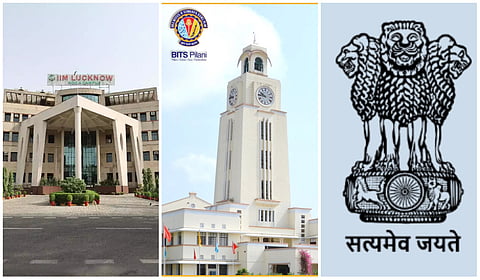Collaborative study between IIM Lucknow, BITS Pilani highlights strategies for inclusive job growth
A recent collaborative study between the Indian Institute of Management, Lucknow, BITS Pilani and the Ministry of Agriculture has revealed a concerning trend in India's employment landscape.
According to a press release from IIM Lucknow, research led by Prof. D. Tripati Rao sheds light on the stagnation in job creation relative to India's expanding working-age population. This issue is particularly alarming given India's remarkable economic growth between 2004-05 and 2017-18, which has not been matched by proportional employment generation.
What are the key findings under the research?
The comprehensive research paper, published in the Indian Journal of Labour Economics, draws upon data from the National Sample Survey Office (NSSO) Employment and Unemployment Survey, as well as the Periodic Labour Force Survey Dashboard.
Notably, the study highlights that while the agriculture sector in India employs a significant number of youth, it generates low value-added contributions to the overall economy, resulting in substantial employment challenges.
Conversely, non-farm sectors with higher economic potential are hesitant to increase hiring, despite their capacity to make substantial contributions to economic growth. This trend has failed to match the pace of the expanding working-age population in the country.
In addition to these concerning findings, the study also proposes effective strategies to enhance job creation, thereby fostering greater economic upliftment.
Strategies outlined under the research for employment generation:
The study also examines the growing prevalence of short-term gig and platform jobs, exacerbating the challenge of creating stable employment opportunities. According to NITI Aayog, these types of jobs are expected to increase to 23.5 million by 2030. To tackle this issue, the study recommends policy interventions aimed at making the manufacturing sector more labour-intensive to foster inclusive growth.
Furthermore, enhancements in health and education services have the potential to transform unemployed youth into a skilled workforce.
Moreover, Prof. D. Tripati Rao emphasizes the importance of assessing not only the quantity but also the quality of jobs created.
To get all the latest content, download our mobile application. Available for both iOS & Android devices.

